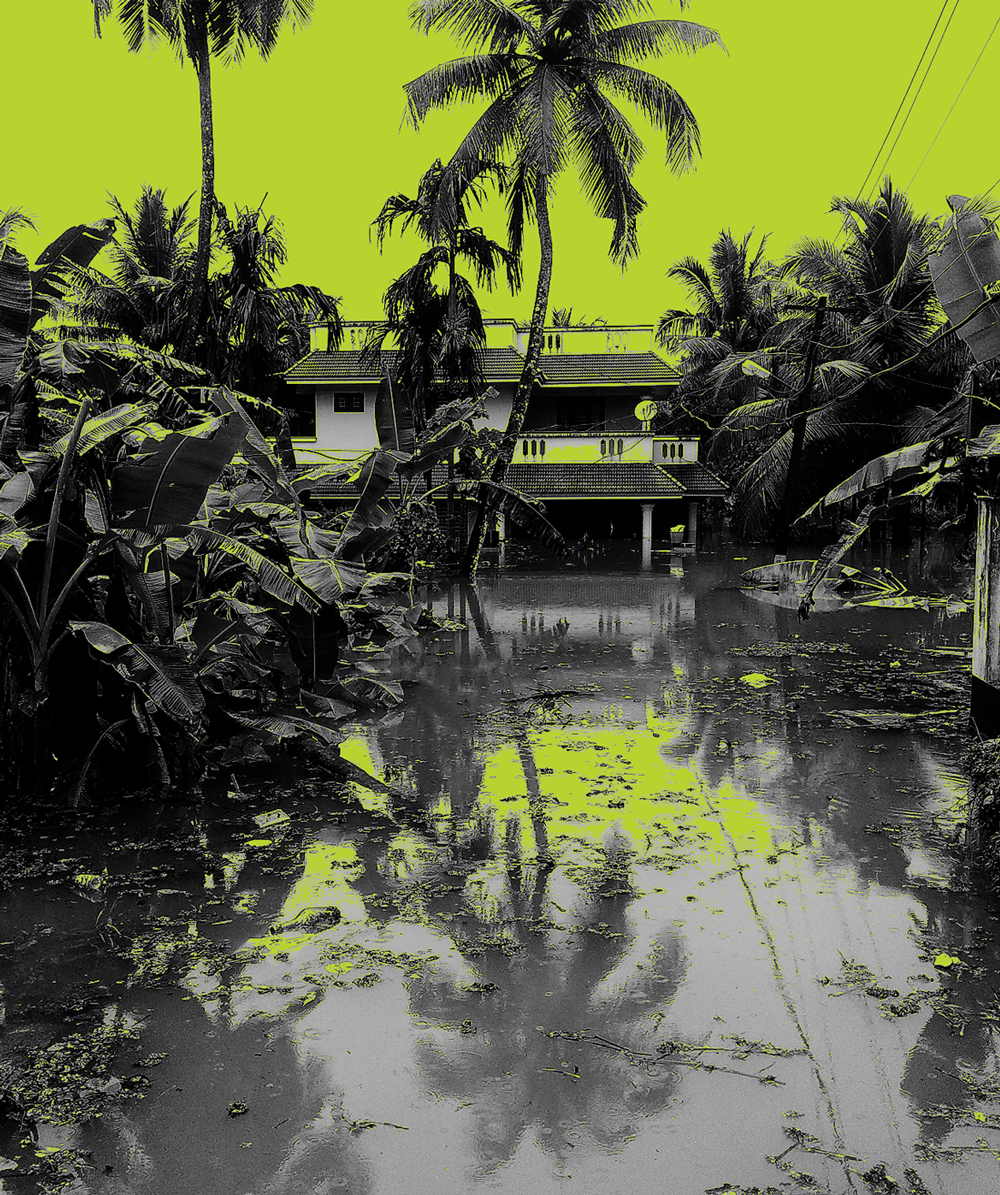The implications of climate change have not been lost on mental health professions. In May 2021, the Royal College of Psychiatrists in the UK called for international cooperation and urgent action by declaring a climate and ecological emergency. A survey conducted by the college found that as many of the UK public (84 percent) believe that climate and ecological emergencies will affect mental health in the next decade as they believe that unemployment (83 percent) and COVID-19 (84 percent) will. More interestingly, 60 percent of the respondents said that the climate and ecological emergencies are affecting their mental health now and will continue to do so in the future. Dr. Adrian James, President of the Royal College of Psychiatrists, said, “The climate and ecological emergency is a mental health emergency. Our mental health is entwined with the health of our natural world.”
Nowhere is this more starkly borne out than in Kerala. The past few years have seen Kerala being battered by torrential rains resulting in large-scale flooding. Cloudbursts causing landslides in the mountains of the Western Ghats have become more common. Farming, which has always depended on predictable weather patterns, has suffered as the previous patterns have become undependable. Needless to say, environmental degradation and climate change have come to the fore as yet another social determinant of mental ill-health. In the UK, flooding, which is the most common disaster, has been shown to be associated with anxiety, depression, and post-traumatic stress disorder (PTSD) in survivors and a similar picture has been reported in India as well.
The big question is, like with all other social determinants of mental health, can we act to mitigate the effects of climate change?
This piece focusses on the work that MHAT (Mental Health Action Trust) has undertaken amongst a vulnerable group affected by climate change in Kerala. MHAT has been active in the field of community mental health for almost a decade-and-a-half, providing free, comprehensive community-based mental health services to people from socio-economically disadvantaged backgrounds. As we became aware of the disproportionate effects of climate change on certain communities, we decided to shift our focus to where we felt it is needed the most. We began to work amongst the fishing communities of coastal and inland Kerala. We were particularly interested in the problems faced by the women from these communities
ISSUE NO. 5 DECEMBER
THE MARIWALA HEALTH INITIATIVE JOURNAL


Re-Vision 
Context 
Engage 
Mental Health In The Darjeeling Himalaya Socio-Ecology

Memories of ‘Floods’, ‘Erosion’, and ‘Displacement’

Environmental Health and Care Require Environmental Justice

From Collective Trauma to Collective Action

Troubled Waters

Is it a Good Time to Bring a Child into this World?

Working for Disabled People’s Organisation of Bhutan










